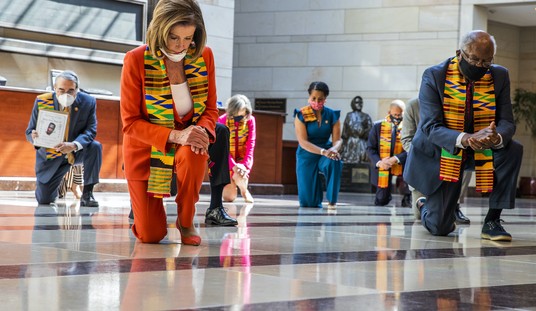This morning’s Gospel reading is Luke 24:35–48:
The two disciples recounted what had taken place on the way, and how Jesus was made known to them in the breaking of bread.
While they were still speaking about this, he stood in their midst and said to them, “Peace be with you.” But they were startled and terrified and thought that they were seeing a ghost. Then he said to them, “Why are you troubled? And why do questions arise in your hearts? Look at my hands and my feet, that it is I myself. Touch me and see, because a ghost does not have flesh and bones as you can see I have.” And as he said this, he showed them his hands and his feet. While they were still incredulous for joy and were amazed, he asked them, “Have you anything here to eat?” They gave him a piece of baked fish; he took it and ate it in front of them.
He said to them, “These are my words that I spoke to you while I was still with you, that everything written about me in the law of Moses and in the prophets and psalms must be fulfilled.” Then he opened their minds to understand the Scriptures. And he said to them, “Thus it is written that the Christ would suffer and rise from the dead on the third day and that repentance, for the forgiveness of sins, would be preached in his name to all the nations, beginning from Jerusalem. You are witnesses of these things.”
Among my favorite ways to spend time with people is in sharing a meal with them. Perhaps it’s the Italian in me, or maybe it’s a product of growing up where family meals and feasts were the main opportunities to get together with the people we love. My best memories are of sausages on the grill, sunny days where we ran around and played games whose rules we barely understood or even cared about, and in general lost ourselves in the moment. And hey, it was even more fun when I was a kid.
To this day, I’m overly fond of table conversation among larger groups of people, and find meals on my own to be wasted motion, for the most part. Except for the food itself, of course, which I enjoy all too much at times, it seems like a lost opportunity that leaves me at loose ends. The human connection over one of our most basic needs offers us a chance to look beyond ourselves and embrace both the connectedness and the distinctions of those around us.
The Eucharist speaks to us in those same ways, only connecting us to Christ and the Trinitarian life as well. The two disciples on the road to Emmaus learned this in the previous episode in Luke’s Gospel, a lesson which they bring back to Jerusalem afterward. They tell the other disciples, still awaiting the Holy Spirit in the city, about the way in which Christ came to them as a companion on their journey, lifting their spirits as they walked, but without His identity becoming known to them. Only in breaking the bread with this stranger did they connect fully with Christ, and in that moment He disappeared.
When they tell the story to the other disciples, Jesus reappears in their midst, as Luke writes, but the experience is different. This time, Jesus makes sure that they understand His presence is not just an illusion or spirit only, but in the flesh as well. He offers them the same opportunity that Christ offered Thomas in John’s Gospel last week, allowing them to have both knowledge and faith in His resurrection. He then emphasizes His risen, corporeal reality by asking for normal human sustenance, sharing their meal in order to share more of Himself with the disciples.
This parallels what John writes about at the end of his Gospel. Just before ascending to heaven, Jesus meets the disciples on the shore of Galilee. Just like the disciples on the road to Emmaus, they do not recognize Jesus at first, not even when greeting him from their boat. He instructs them to cast their nets to the right side, and John realizes who the stranger is. As Peter swims ashore to greet Him, the nets become so full that they almost cannot bring in their haul. Jesus then makes them breakfast and breaks the bread Himself to feed the disciples.
In all of these passages, the joy of Christ and in being in His presence comes across strongest. The joy comes in part from our natural, human desire for communing at meals and connecting with those we love, to be sure. And what is the Mass, anyway, if not the communal meal of the entire Church? Our sacrifice provides the bread and the wine; Christ makes it holy by transubstantiating it into His body and blood, so that we all may commune with Christ. We come together in joy to celebrate Christ’s great sacrifice for us, in which our human failings get confounded despite ourselves.
Peter explains in our first reading from Acts:
You denied the Holy and Righteous One and asked that a murderer be released to you. The author of life you put to death, but God raised him from the dead; of this we are witnesses.
God offered people the choice between the author of eternal life and a murderer, someone who usurped the role of the Lord for his own ends — the nature of sin itself. Failed humanity chose sin, but the Lord was wiser, and His purpose would not be thwarted. God raised Jesus from the dead, and His own humanity allowed us a path to the Trinitarian life despite ourselves. Christ returns not just in the Gospels but constantly, beckoning us to the table and into communion with Him.
This is our choice to this day, every day. We can choose to remain in sin, usurping the Lord’s authority for our own selfishness, or we can choose to come to the table as equals and accept Christ’s love, forming ourselves to His will rather than ours alone. There is a lot more joy at the table, though, especially with the family we have in the Lord.
The front page image is a detail from “Supper at Emmaus,” 1604, artist unknown. On display at the Church of Our Lady in Bruges, Belgium. Formerly attributed to Caravaggio.
“Sunday Reflection” is a regular feature, looking at the specific readings used in today’s Mass in Catholic parishes around the world. The reflection represents only my own point of view, intended to help prepare myself for the Lord’s day and perhaps spark a meaningful discussion. Previous Sunday Reflections from the main page can be found here. For previous Green Room entries, click here.








Join the conversation as a VIP Member